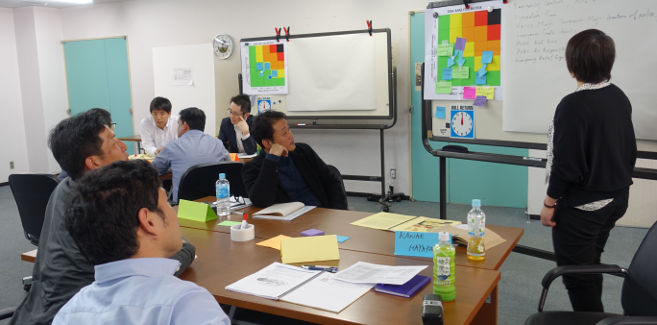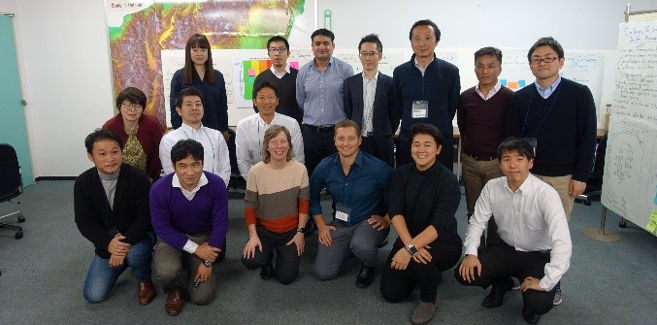Japan International Cooperation Agency (JICA) Jan 2020

InterWorks conducted a Security Risk Management (SRM) workshop specifically for JICA personnel in Tsukuba, Japan from 8-10 January 2020 at the JICA Training Institute. Participants attending were from the Security Management Department at JICA HQs and from JICA Overseas Offices Participants from the overseas offices came from the Americas and the Caribbean (Haiti, Guatemala and Mexico) and Asia (Afghanistan, India, Indonesia, Kyrgyzstan and Timor-Leste).
The course focused on the overall security risk management (SRM) approach as well as specific tools and techniques, from initial threat assessment to mitigation of risk, security planning, and critical incident management. The general security risk management process used by the UN Security Management System formed the basis for the presentations and materials.
The course trainers provided short presentations of key components of the overall SRM approach and provided scenario-based, hands-on exercises through which each of the tools introduced could be explored, utilised and practiced. Participants completed the exercises using the fictional Suremia case study (used in the UNHCR eCentre trainings). The Suremia case study was adapted for the JICA SRM to focus more on development-related issues and to include information related to a fictional JICA overseas office in Suremia. For any future trainings, it would be worthwhile to review the scenario and continue to make adjustments so that Suremia fits a “typical” JICA context. The Suremia situation is useful as it provides a common framework that all participants can use for analysis. Materials were provided to participants more than a week before each training. This practice should be maintained in the future, perhaps with a follow-up email to remind participants to review the case study information.
The workshop was highly participatory, emphasizing hands-on application of tools and skills. Participants discussed real-life cases, best practices and lessons learned from the humanitarian and development fields. Above all, they were required to apply lessons in practical and realistic exercises and complex field simulations.
To meet the objectives, the workshop included two short critical incident management exercises – one on the first day to immerse participants into the topic of security risk management, including what to do if an incident occurs, and to set a baseline for response. A second, longer, (more complex CIM exercise took place on the final day so participants could practice what they learned during the workshop.
I learned many things in this seminar. I could understand basic concept on security risk management. I could take part in the seminar positively because of coordinator’s kind attitude and clear explanation and messages.
– Workshop participant

